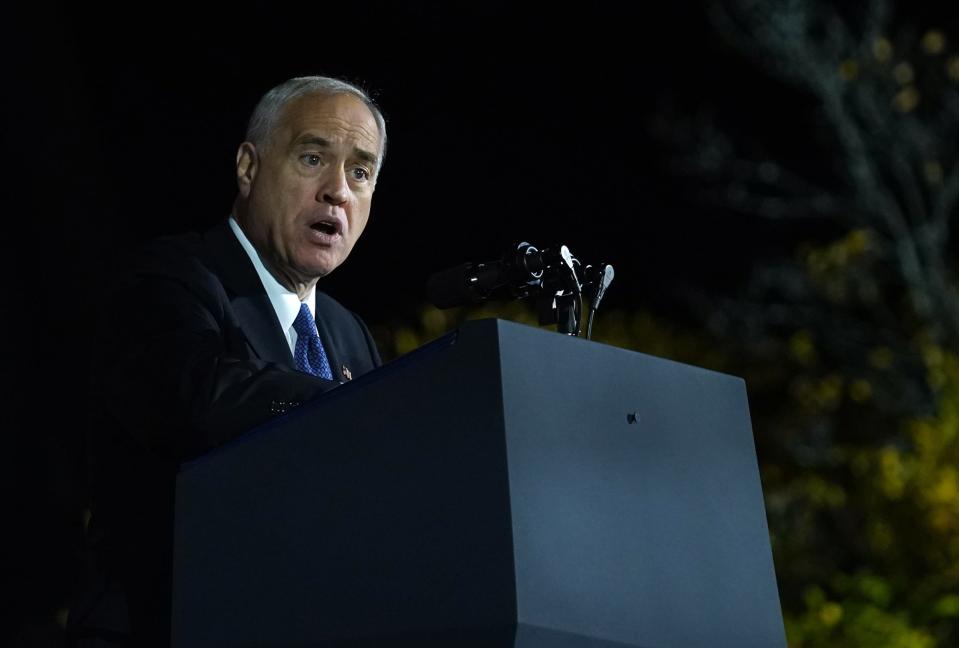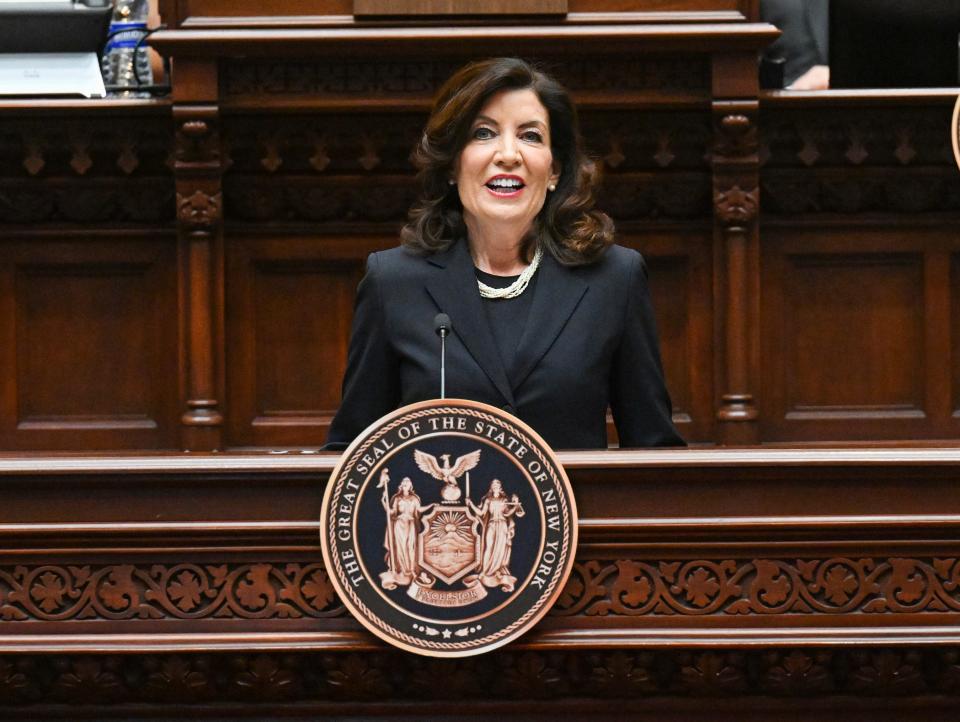NY headed for budget deficit? Warnings swirl as NY spending outpaces taxes
- Oops!Something went wrong.Please try again later.
- Oops!Something went wrong.Please try again later.
New York's biggest budget headaches this year were policy fights over housing and bail that tied Gov. Kathy Hochul and state lawmakers in knots for weeks and dragged the budget a month past its deadline.
But next year, New York's finances could be priority no. 1 in budget talks, as early signs show looming gaps in what New York spends and what it collects in taxes.
The latest warning came in a report last week from state Comptroller Tom DiNapoli, which predicted a mounting shortfall as state spending outpaces revenues in coming years. Next year, leaders might have to close a $9.1 billion gap. In another two years, the projected deficit is $13.4 billion.
Those gaps are too big to close with reserve funds the state recently built up, DiNapoli cautioned. In the dry wording of a money manager, he urged leaders to "align recurring revenues with recurring spending" in order to avoid painful cuts in critical programs and keep New York competitive.
“The Governor and the Legislature prudently increased New York’s reserve funds, but that cannot replace fiscal discipline or be relied upon to plug recurring budget gaps," DiNapoli said in a statement that accompanied the July 18 report.
2023 budget: Minimum wage, bail, cigarettes: As NY passes budget, here's what stayed and what got cut
What's causing NY's revenue gaps?
Hochul's budget staff saw no future deficits when she released her initial plan on Feb. 1. One reason the outlook worsened by June was that Hochul and state lawmakers added $1.9 billion in spending to the $229 billion final budget. Much of that was onetime — or non-recurring — spending, such as $391 million in rental aid for New Yorkers who fell behind on rent.
The Division of Budget also changed its forecast to predict the national economy will weaken and cost New York jobs in 2024. It lowered its estimates for future tax income by a total of $25 billion over four years because of reduced personal income tax payments.

The state also faces the dwindling of pandemic relief, a huge stream of federal aid that buoyed the budget for the last three years. This year alone, that made up much of the roughly $15 billion in temporary or non-recurring funds that state officials say supported the budget.
At the same time, state Medicaid costs jumped 12.5% this year and are projected to climb 6% per year over the next three years, according to DiNapoli's report.
The state expects revenue to drop by $10.6 billion this fiscal year, including a $6 billion reduction in its largest source: personal income taxes. That's partly due to reduced tax rates for the middle class. But it's also attributed to a steady exodus of taxpayers, including some of the state's highest earners.
Housing clash: Mandates or rewards? Hochul and NY lawmakers reach for deal on how to spur housing growth
Looming budget gap a sign of overspending or deflating economy?
Fiscal conservatives see the looming gaps as the inevitable result of rampant spending, which must now end.
Ken Girardin, a fellow at the Empire Center for Public Policy, an Albany think tank, sounded that note in a blog post after the Division of Budget released its 154-page analysis of the adopted budget in June.

"The new gap calculation," he wrote, "is the clearest evidence to date that Albany’s three-year spending binge, which has seen both school aid and Medicaid costs explode and has been partially fueled by personal income and business tax hikes, can’t be sustained."
The left-leaning Fiscal Policy Institute took a different view, saying in June that the gap predictions seemed based on a gloomy economic outlook, not an imbalance in state spending and taxes. Its report suggested dipping into the state's $19.5 billion in reserves and avoiding cuts to public services, which it said would worsen a recession.
The writers also noted the uncertainty of future economic projections.
"There is not yet any evidence of a recession," they said. "The State should respond to economic conditions on a year-by-year basis as they unfold."
Chris McKenna covers government and politics for The Journal News and USA Today Network. Reach him at cmckenna@gannett.com.
This article originally appeared on Rockland/Westchester Journal News: NY warned of growing budget deficit. Here's what's causing it

